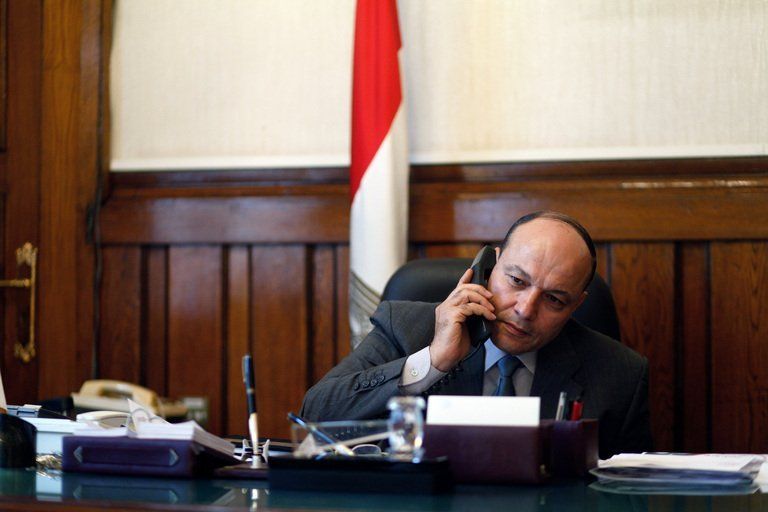Qasr El-Nil Misdemeanours Court issued Sunday the reasoning behind the verdict it issued a day earlier against the Press Syndicate president and two board members. The trio were sentenced to two years in prison and a EGP 10,000 bail each.
The defendants include syndicate president Yehia Qalash, secretary general Gamal Abdul Reheem, and head of the syndicate’s Freedoms Committee Khaled El-Balshy.
They were sentenced according to articles 144 and 145 of the Penal Code. The two articles stipulate that it is a crime to harbour individuals while knowing or suspecting that they are wanted or have committed a crime.
According to a copy of the verdict’s reasoning published in local media, the court found the defendants guilty of harbouring two wanted journalists with prior knowledge of their cases, and sheltering them at the syndicate.
Journalists Amr Badr and Mahmoud Al-Saqqa were wanted by the prosecution for preparing protests through meetings with “revolutionaries and Muslim Brotherhood members” against the Egyptian-Saudi maritime border agreement, according to the court. Knowing that they were being sought for arrest, the journalists looked to the Press Syndicate to interfere in the case.
The court said that the Press Syndicate leaders showed clear intention for the crime of harbouring the two suspects, especially on behalf of the third suspect, in reference to El-Balshy, who reportedly published a story about the matter on the local Al-Bedaiah website, of which he is the editor-in-chief.
The story announced that the two journalists were to begin an open strike at the syndicate in objection to security raids on their homes.
“According to information collected by a National Security officer, Qalash was informed of the two journalists’ hiding,” said the court.
In the court’s reasoning, Qalash reportedly tried to contact the Interior Ministry while waiting to officially address the general prosecutor on the issue. While waiting for Qalash to discuss the issue with authorities, the journalists were supposed to remain in the syndicate for three days, but were arrested on the second day.
“Security reports said the two suspects sought shelter in the syndicate to irritate security forces in case they arrested them, with the purpose of portraying a negative image to local and international public opinion that the police stormed the syndicate,” the court’s reasoning said.

